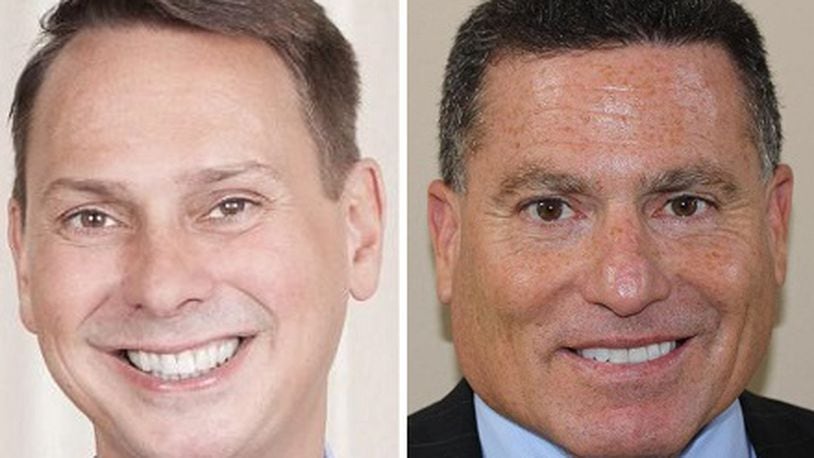We asked Perales and Housh questions about jobs, schools and other issues as part of our voters guide. See some of their answers below. Find other answers and learn about other candidates and issues on the ballot at vote.daytondailynews.com
Q: What are the two biggest challenges facing the state and how would you deal with them?
Brian Housh: The two biggest challenges facing Ohio are our aging infrastructure and our decreasing competitiveness. Smart economic development is one of my policy priorities, focusing on investment in infrastructure, which will create good jobs and ensure sustainable and secure futures for all Ohioans.
In the last six years, Ohio has fallen from 5th to 23rd in education system rankings among the fifty states. To turn around our state’s steady declines in quality of education, innovative education strategies are critical; we can equip people with 21st century skills and facilitate workforce readiness by strengthening our public schools and encouraging STEM & inquiry-based learning.
I am a doer and will hit the ground running as a state representative. During my three years on village council, I have been engaged with investing in infrastructure, establishing community development policies, balancing budgets and addressing affordability. I know what it takes to successfully represent a diverse group of community members.
Rick Perales: 1. Heroin/opiate Addiction Epidemic - This situation remains a major issue in the country and state, requiring us to pull together to develop a comprehensive solution. We, in the Ohio General Assembly, have made significant strides effecting legislation and providing tools to combat this grave situation. There is no panacea; we have to continue to focus on and address all elements of the problem – prevention, response, recovery, and maintenance. We will continue to tackle the heroin/opiate issues as a top priority in the next General Assembly.
2. Economy - Keeping Ohio’s economy strong and attractive for business, by having a competitive tax structure and minimum/limited regulations, we can maintain current, and attract new businesses to the state. Closely aligned with the economy is education and workforce development.
We need to ensure a trained and educated workforce is in place to act as a magnet for business. Focusing on these key areas will keep our economy strong, resulting in more tax revenue available for education, infrastructure, and other critical state programs.
Q: What will be your top priority if elected?
Brian Housh: My top priority is to facilitate 'local control' — properly funding municipalities to better leverage tax dollars. Decisions to spend taxpayer money are best made by local elected officials who are close to and understand the needs of their community members.
By shifting funds back to local governments and facilitating their decision making and regional collaborations, state government will truly turn Ohio around in terms of economic development, educational achievement and citizen prosperity. Socially responsible fiscal practices mean allocating funds in a manner that best supports quality of life for community members. There are sufficient taxpayer dollars, if spent wisely, to provide meaningful social services while maintaining a balanced budget. Strategic thinking and strong leadership are key.
Rick Perales: I will work with my fellow legislators to address the Ohio's biggest challenges, heroin/opiates and the economy. In addition to these critical issues, I will continue to lead the House of Representatives in military/veteran matters, as well as ensuring we are ready to capitalize on the burgeoning aerospace and aviation opportunities in the State.
Q: Ohio has consistently cut income taxes over more than a decade. Do you support further reductions or increases in the state income tax? Why?
Brian Housh: I am concerned that further reductions in Ohio's income tax will cause fiscal instability for our state while not achieving the ultimate goal of improving job creation.
It is critical that the local government fund be restored so that municipalities are not forced to cut services if new levies are not passed. Although lowering taxes is appealing, one negative impact is that we are not able to adequately invest in infrastructure and brighter futures for citizens.
Current income tax policy has meant that more burden falls on lower- and middle-income Ohioans. Successful companies, which we want to remain or locate in our state, prioritize economically vital regions because they can only thrive where there are well-trained workers, reliable transportation systems and strong markets.
This requires public investment in schools, infrastructure, training and services, which a reasonable income tax rate helps to fund.
Rick Perales: I believe a low state income tax is a draw for workforce and business, as long as our business tax structure remains competitive. I would like nothing more than to continue to reduce the state income tax; this effort requires a delicate balance.
The state has to realize more tax revenue, or realign tax revenue from other sources in order to make this happen. Of course the key in reducing the income tax or maintaining a responsible budget in general is minimizing state spending.
About the Author
